I need help for the upcoming articles. There are GeoHistory ones on the Coup Belt in Africa (in the Sahel: Senegal, Mali, Niger, Burkina Faso, Chad, Sudan, and also Guinea), Belgium, Austria, Mexico, and Munich. I will also write about the algorithms of dating apps (Tinder, Bumble, etc). If you’re knowledgeable about any of these places and what to have a look at the drafts to correct them, please fill in this form!
Hungary used to host one of the world’s most powerful empires—the Austro-Hungarian Empire. Now, it’s not even in the top 10 EU countries by GDP and is among the bottom countries in GDP per capita. What happened?
Why are Hungarians so bitter about their present-day borders?
Why is the capital, Budapest, the only region in Europe where people feel European above all?
Why do a third of Hungarians live outside of Hungary?
Why is Hungarian such a weird language, not related to any language spoken in neighboring countries?
Why is it called Hungary?
Why are horses so important to Hungarian culture?
All of these questions are linked to one fact, visible in this map. Question: Where was the historic Hungary / Austro-Hungarian Empire?

For over 1000 years, the plain surrounded by mountains in the middle—called the Hungarian or Pannonian Basin—has hosted Hungary.
Here’s a vertical view:
What a perfect little basin! Perfect plains for agriculture, surrounded by a natural wall that provides protection and doubles as a way to catch moisture from the wind and convert it into rivers that criss-cross the country.

All this water builds up in the basin and forms the lion’s share of the Danube, the second longest river in Europe.
The Danube’s escape route from this basin is in the Iron Gates, a pass through the southeastern mountains:
This is why the Danube is flat in the middle of Hungary but surrounded by mountains close to the Iron Gate:
And this shows the Danube’s water basin in deep blue in the middle:

The Carpathian Mountains seclude the Pannonian Basin from the north and east, the Alps from the west, the Balkans from the south and west—and the Mediterranean further west. Unsurprisingly, with so much seclusion, Hungary is one of the few small areas in Europe to have its own biogeography.
All these mountains around the basin form a pretty nice defense. Compare that to Ukraine’s wide-open borders.
This map shows the different polities Hungary has belonged to throughout history: Over 1000 years of Magyar/Hungarian/Austro-Hungarian reign, punctuated by few invasions:
As you can see, pretty centered around the Pannonian Basin, except for the times it belonged to the Roman and Ottoman Empires.
Look how it compares to maps of neighboring regions like Germany, Poland, Ukraine, or Romania. None of them include such a centralized region for large amounts of time:
Look how much Poland and Ukraine have been exposed to Eurasia (images 2 and 3), and how much the Romanian coast has been exposed to Mediterranean naval powers.1
Why are Hungary’s historic borders so defined? Because it has barely suffered invasions in the last 1,000 years. Before that, though, there were a few.
The western and southern part of Hungary was part of the Roman Empire. The H in Hungary probably stands for the Huns who conquered it around 400 AC.
Then came the Avars, the Khazars, the Franks, the Bulgarians… The story of Ukraine repeats itself: invasion after invasion of eastern horse-mounted peoples. Until the invasion of the Hungarians, or Magyars, in 896 AC.
If you read Uncharted Territories, you shouldn’t be surprised about this. There were lots of horse-mounted peoples on the Great Eurasian Plain, and there were frequent domino effects of eastern raiders moving west and displacing raiders who would then move west and do the same again. The Hungarians themselves probably came from the Ural mountains, and moved west over centuries.
But whereas Ukraine has been invaded by peoples from the east for thousands of years—up to this day—, the Magyars were the last to settle in Hungary.
The Pannonian Basin was pretty ideal for them: It still contained a huge plain that could feed their horses, but it benefitted from the surrounding mountains for protection.

For the first few decades after their arrival, they kept raiding neighboring areas.

It’s interesting to note that most languages in Europe are either Latin, Germanic, or Slavic—all three of these families belong to Indo-European. Hungarian isn’t.

It tells you something about the defensibility of the Hungarian Plain that it’s surrounded by all these external forces, by all this pressure from powerful peoples and their languages, and yet it was able to keep its own. Few could successfully invade Hungary.
After 900, only about two foreign invasions of the Pannonian Basin succeeded. One was none other than the Mongols.
After overwhelming everywhere from China to Poland, Hungary was their last stop. The Mongols were able to maneuver their horses through the Carpathians and attack on four fronts. The Hungarians, not used to this type of invasion, suffered massive losses—up to 25% of their population, maybe more. Luckily, the Mongols withdrew before finishing the campaign.2 By their next campaign, a few decades later, the Hungarians had prepared and completely destroyed the Mongols, not through a full-frontal attack, but by decimating them as they passed the Carpathians and by forcing them to lay siege to a hundred castles built to withstand their armies.

Hungary would keep the same shape for another 250 years, until the 1500s, when the Ottomans penetrated the basin from the south. And once they did, there was really nothing to stop them. Indeed, the Ottomans spent centuries progressing through the Balkans, but taking over the Pannonian Basin was much faster.

Since the Pannonian Basin is so flat, once you control it, it’s hard to kick you out. The Ottomans would occupy the basin for 150 years, during which they fought on and off with the Habsburgs. Eventually, the Christian kingdoms led by Poles stopped the Ottomans in Vienna in 1683. The Habsburg based in Vienna then started a counterattack that would reconquer all the Pannonian Basin within a couple of decades, and would merge the kingdom of Hungary with their previous dominions to form the Austro-Hungarian Empire.
As you can see, the empire was basically the Pannonian Basin, plus the surrounding mountain ranges, including the Bohemian Massif and part of the Alps in the northwest.
Yet Hungary is this today:
It doesn’t even occupy the entire Pannonian Basin. What happened?
World War I.
Austria-Hungary was one of the three allied central empires in WWI, along with Germany and the Ottomans.
One of the reasons why the central powers lost is indeed because they were central. Without good access to the sea,3 they couldn’t easily trade, and they couldn’t quickly transport soldiers and goods from one side of the empire to the other. They had a substantially harder time getting supplies and support during the war, which is one of the reasons why they folded earlier than the Allies, who surrounded the Central Powers and controlled the seas.
One downside of being so well protected by mountains: No good access to the sea. Which also means trade will be very expensive, and there won’t be much trade with foreign countries. Less trade means less wealth.
Central powers yielded unconditionally in WWI, and the Allies took advantage of it. They broke the Austro-Hungarian Empire into bits and pieces to weaken it in the Treaty of Trianon. Crucially, they divided Austria-Hungary into many countries.
Pieces of the empire were distributed to several countries, and new ones were born: Czechoslovakia, Austria, Poland, Yugoslavia, and Hungary.
The Allies did it purposefully: It would prevent the Austro-Hungarian Empire from growing strong again.
They accomplished that goal, at the cost of angering Hungarians, who felt that they now had a tiny country that did not represent what it should be: a place that encompasses the entire, naturally occurring Pannonian Basin.

Around that time, the idea of the day was to create nation-states, so the Allies tried to draw the borders in a way that would best respect ethnic groups. The map below shows the ethnicities of the Austro-Hungarian Empire shortly before WWI:
Here’s a version of the 1850s:
Hungary was drawn around the heart of the Hungarian people, and other areas were split—even if they were home to many Hungarians. This is why, to this day, one third of ethnic Hungarians live outside of Hungary.
The borders of Hungary are the same today as they were after WWI. This is one of the reasons Hungary quickly turned to Hitler’s side in WWII—he promised to put Hungary, like Humpty Dumpty, back together again. For a few years, Nazis and Hungarians succeeded.
Alas, Hungary was once again on the losing side, and lost it all again, reverting to the 1918 borders.
Then, it had the bad luck of falling on the wrong side of the Iron Curtain and belonged to the Communist sphere. Given its history, however, it’s easy to understand why Hungary was one of the first countries to revolt against the USSR’s occupation, in 1956.

It was also an event organized between Austria and Hungary that triggered the fall of the Eastern Bloc in 1989—led by a Habsburg.
Hungary Today
Today, Hungary is back in the heart of Europe, where it belongs. For over a century now, it hasn’t occupied the entire Pannonian Basin as it did for nearly 1,000 years before. But this is one reason why Hungary and all its neighbors joined the EU: If they’re all together under one umbrella, the national borders matter less.
It’s one of the reasons4 why the inhabitants of Budapest feel more European than anything else: As a capital, regional feeling is not strong. But feeling Hungarian is a bit too painful given the current size of the country. Feeling European corresponds better to its grandiose history of a big Central European power

If we go back to our questions from the introduction, we can see what connects them all—the Pannonian Basin, surrounded by mountains that protect it from the Eurasian Plain:
Hungary used to host one of the world’s most powerful empires. Now, it’s not even in the top 10 EU countries by GDP. What happened? It was powerful because it occupied the Pannonian Basin, but not anymore, because it was cut into pieces by the Allies after WWI, precisely to curtail its power.
Why are Hungarians so bitter about their present-day borders? Because Hungary was bigger for the prior ~1000 years, and people prefer to remember the times when their country was a big, strong winner than when it was a weak loser—like during the Ottoman occupation, for example.
Why do a third of Hungarians live outside of Hungary? Because after WWI, the borders were drawn both to represent ethnicities and to weaken the Austro-Hungarian empire. The best way to achieve that was to split the Austro-Hungarian Empire as much as possible politically.
Why is Hungarian such a weird language, not linked to any language from neighboring countries? Because the Pannonian Basin is so isolated that the influence of Latin, Germanic, and Slavic didn’t penetrate it, and Hungary kept the Uralic language brought by the Magyars at the end of the 800s.
Why is it called Hungary? Because it’s a mix of the H from “Huns” and a word from Old Greek / Bulgarian. This shows the outsized influence of nomadic steppe groups in the region, before one of them—the Magyars— finally established itself there.
Why are horses so important to Hungarian culture? For the same reason: the nomadic tribes from the east that had such an influence in the past settled in the Pannonian Basin, a perfect place to feed the horses and use as a base to raid neighboring countries. They eventually became sedentary, but never lost the horse tradition.
Why does the second biggest European river traverse the country? Because all the water in the Pannonian Basin concentrates in this one river, making it huge.
Why are inhabitants of Budapest the only ones in the European union who identify more with Europe than either their region or country? One of the reasons is because the current status doesn’t satisfy the national feeling, but a bigger polity does.5
I hope you enjoyed today’s article! The next article on Budapest will be premium—and it’s really good because I spent a full week in the city to document everything! We will cover: What’s its history? What’s unique about it? Cool? Why?
After that I’ll have a paywalled article on why has made Hungary so brilliant historically.
Especially the Byzantine and Ottoman Empires.
It’s not clear why. Some say it’s because the Mongol leader of the invasion died and the invaders had to go back to elect a new one, but this is unclear since there’s only one source claiming this and it doesn’t look like the Mongol leader actually made it to Hungary. More reasonable explanations include the fact that the invasion was extremely costly, or that the heavy rains that year made the entire region swampy, which made it very hard for Mongols to move with and feed their horses.
Germany had good access to the Baltic, the sea east of Scandinavia and west of Russia, but this was exposed to Denmark and Sweden, who controlled access to the North Sea. Germany’s direct access to the North Sea was narrow. More importantly, the UK was always a strong maritime power, being surrounded by water, while Germany’s geography forced it to be a continental military, investing most of its resources in the army, not the navy. The same is true of the Austro-Hungarian Empire, which had access to the Adriatic Sea, but only across mountains, and with a narrow access to the broader Mediterranean. It also had access to the Black Sea via the Danube, which is navigable, but it had to go through other countries, and even then, it depended on the Ottoman Empire and Greece to access the Mediterranean. It’s no surprise that the German overseas empire was tiny compared to those of France, Spain, the UK, or even the Netherlands; or that Austria-Hungary didn’t even have an overseas empire.
Another big one is that Budapestians strongly disagree with the nationalistic policies of Orban.
It isn’t the only one though. The progressive capital is also less identified with the nationalistic policies of Mr Orban.





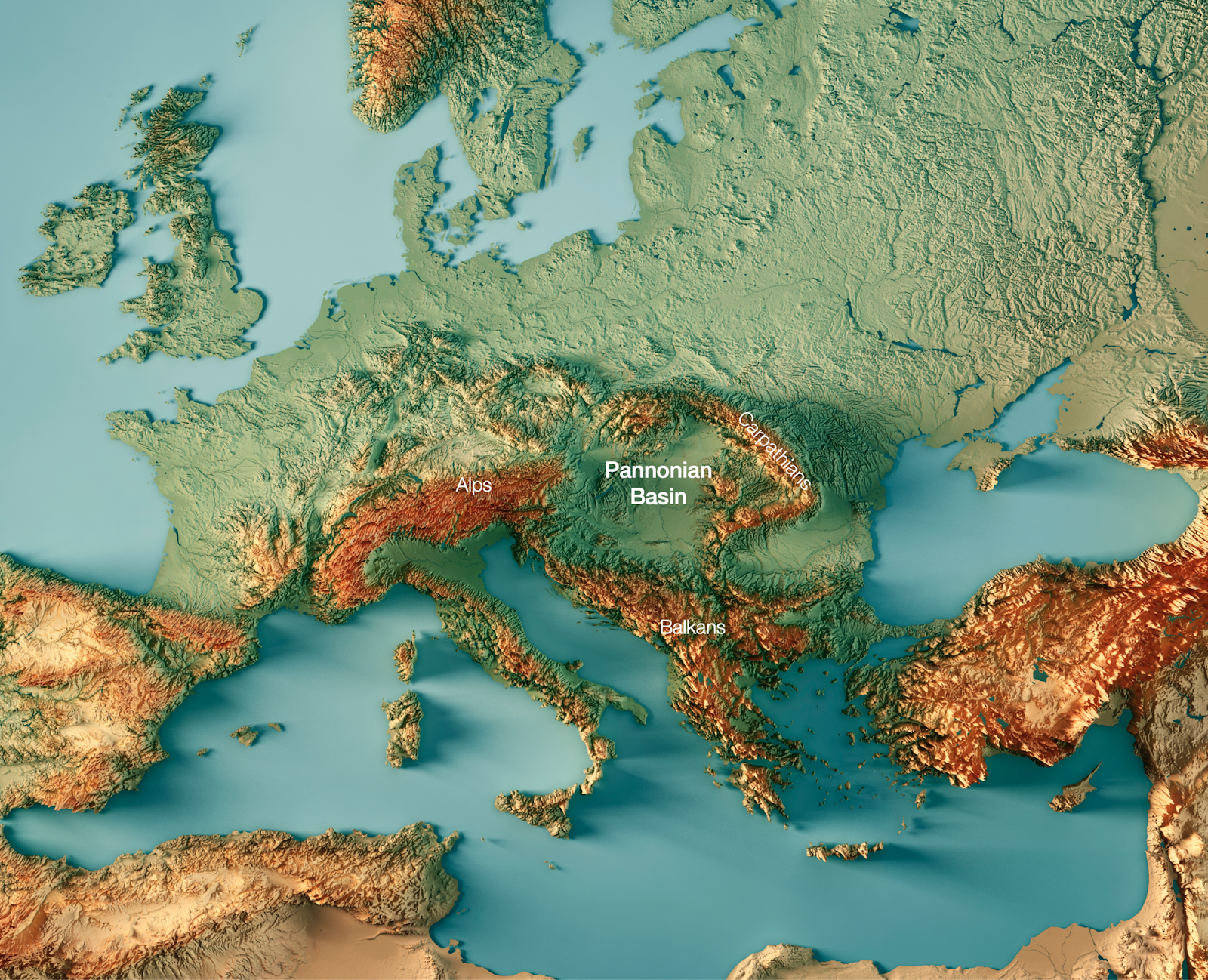
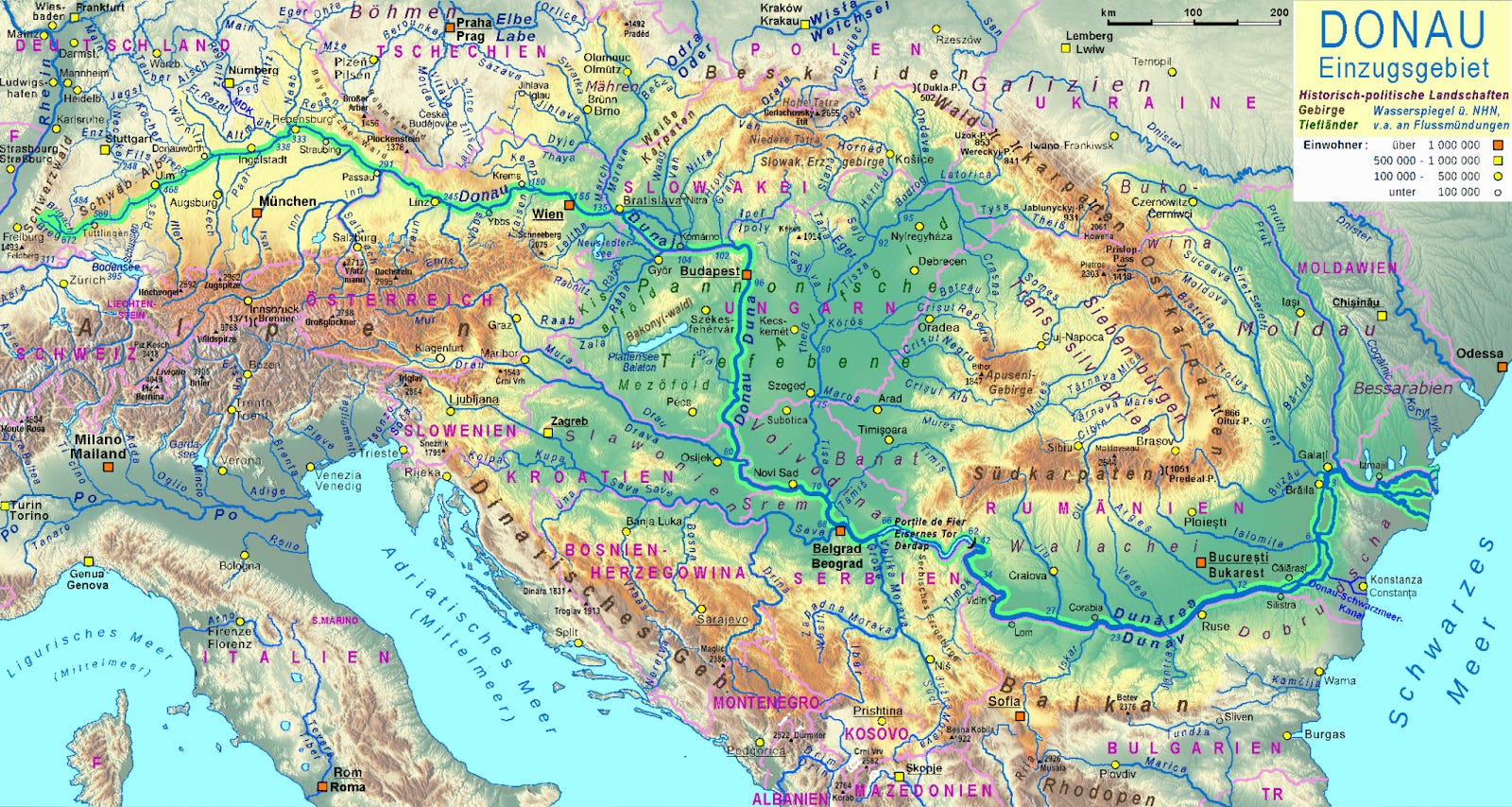




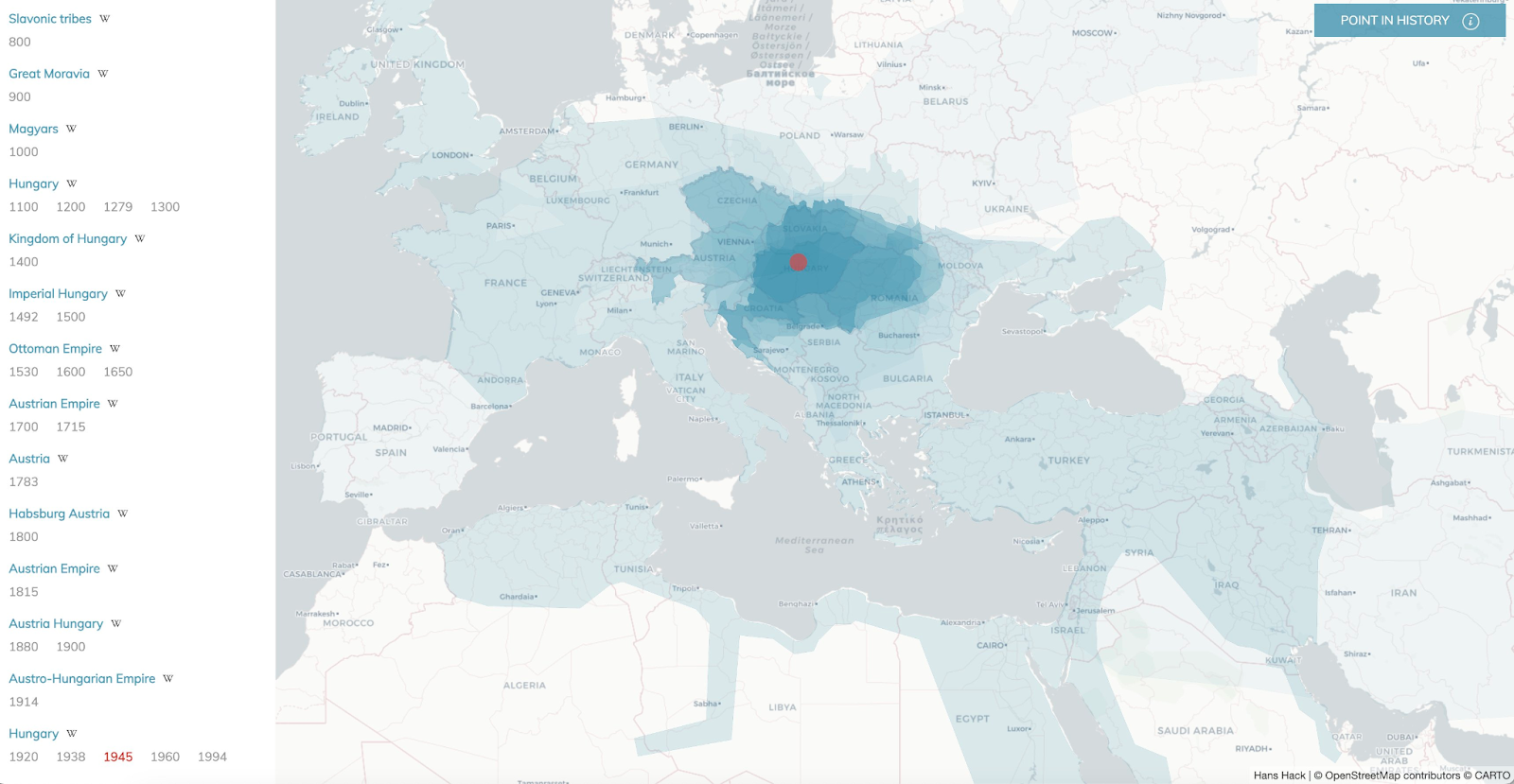
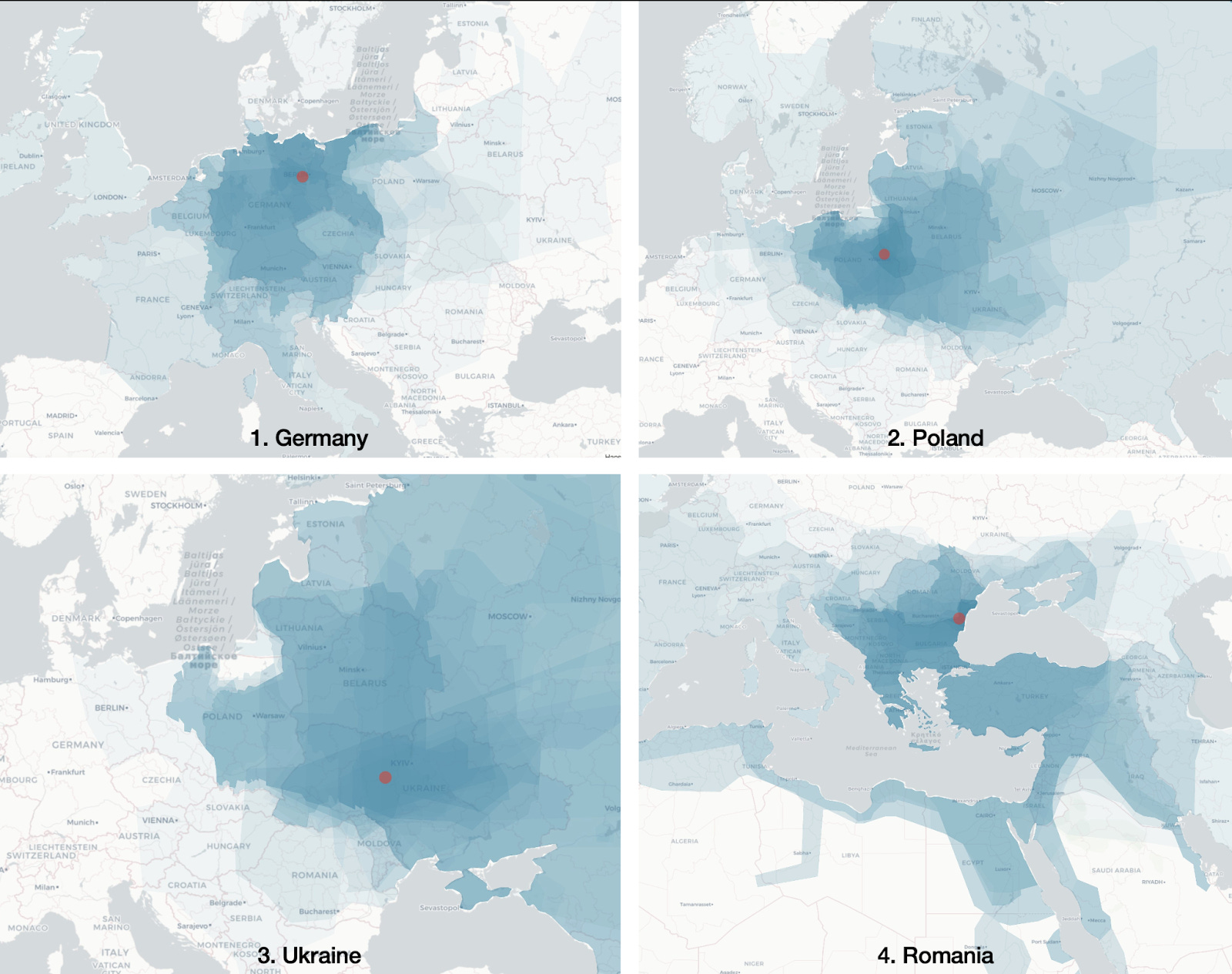



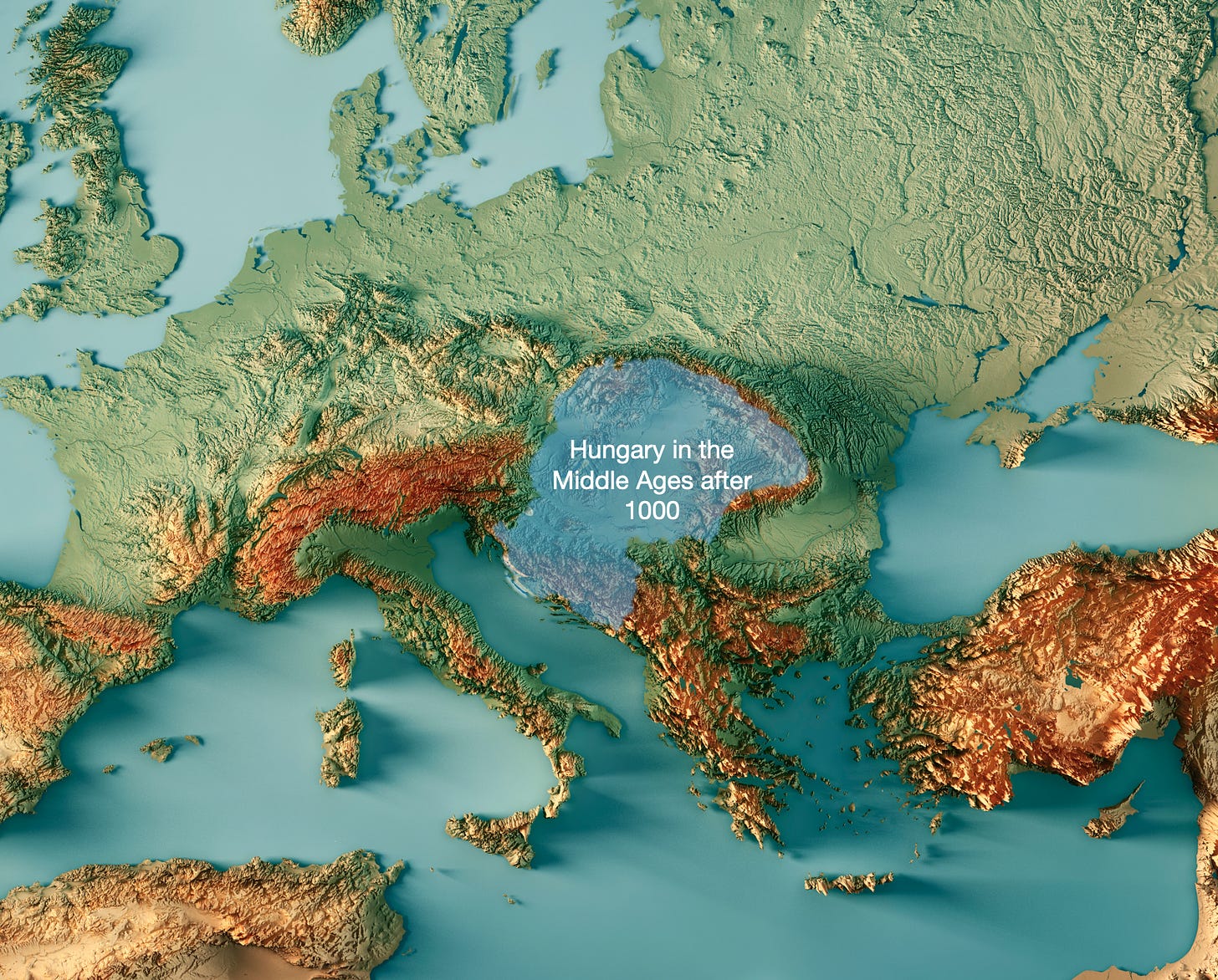








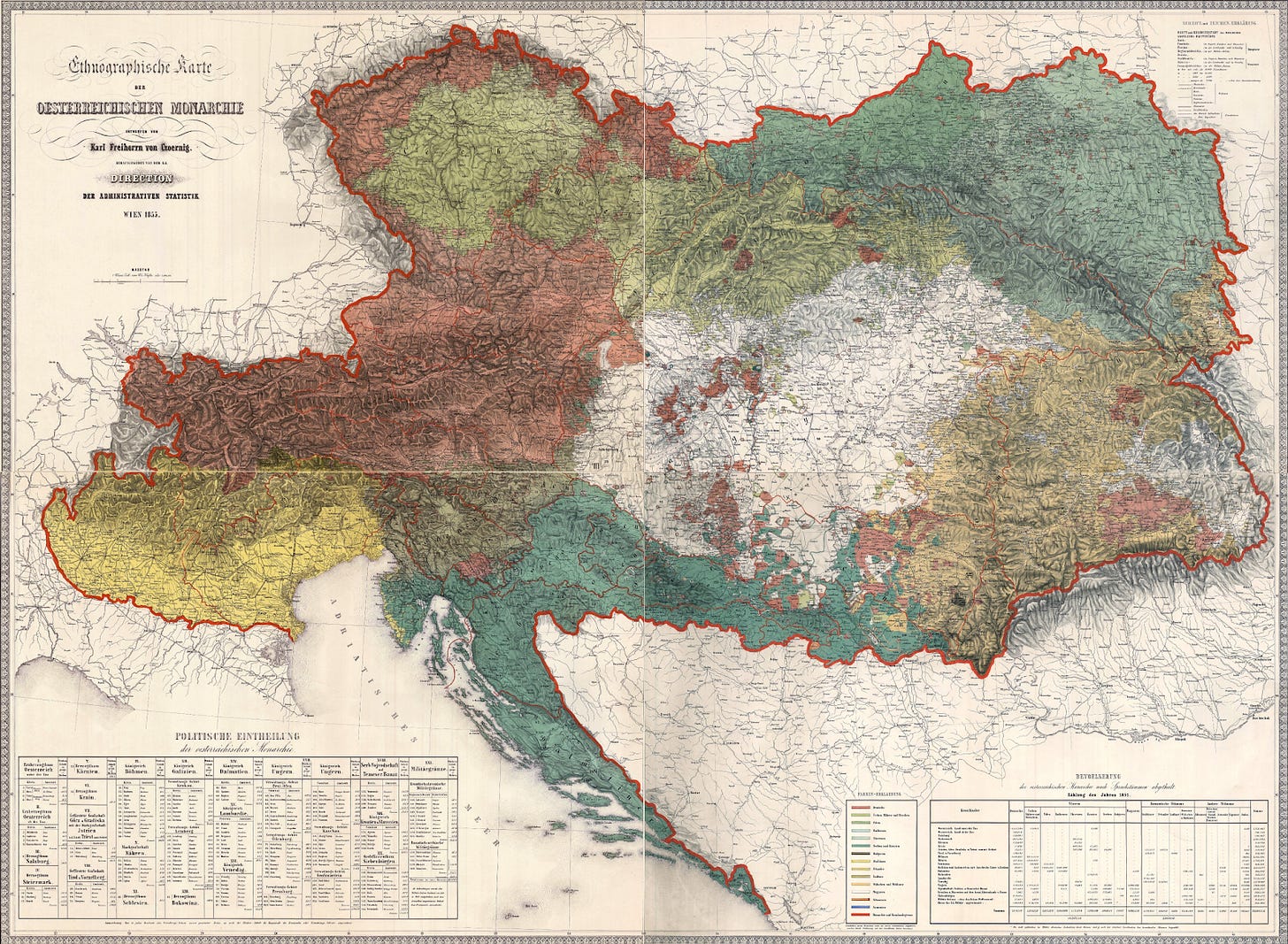
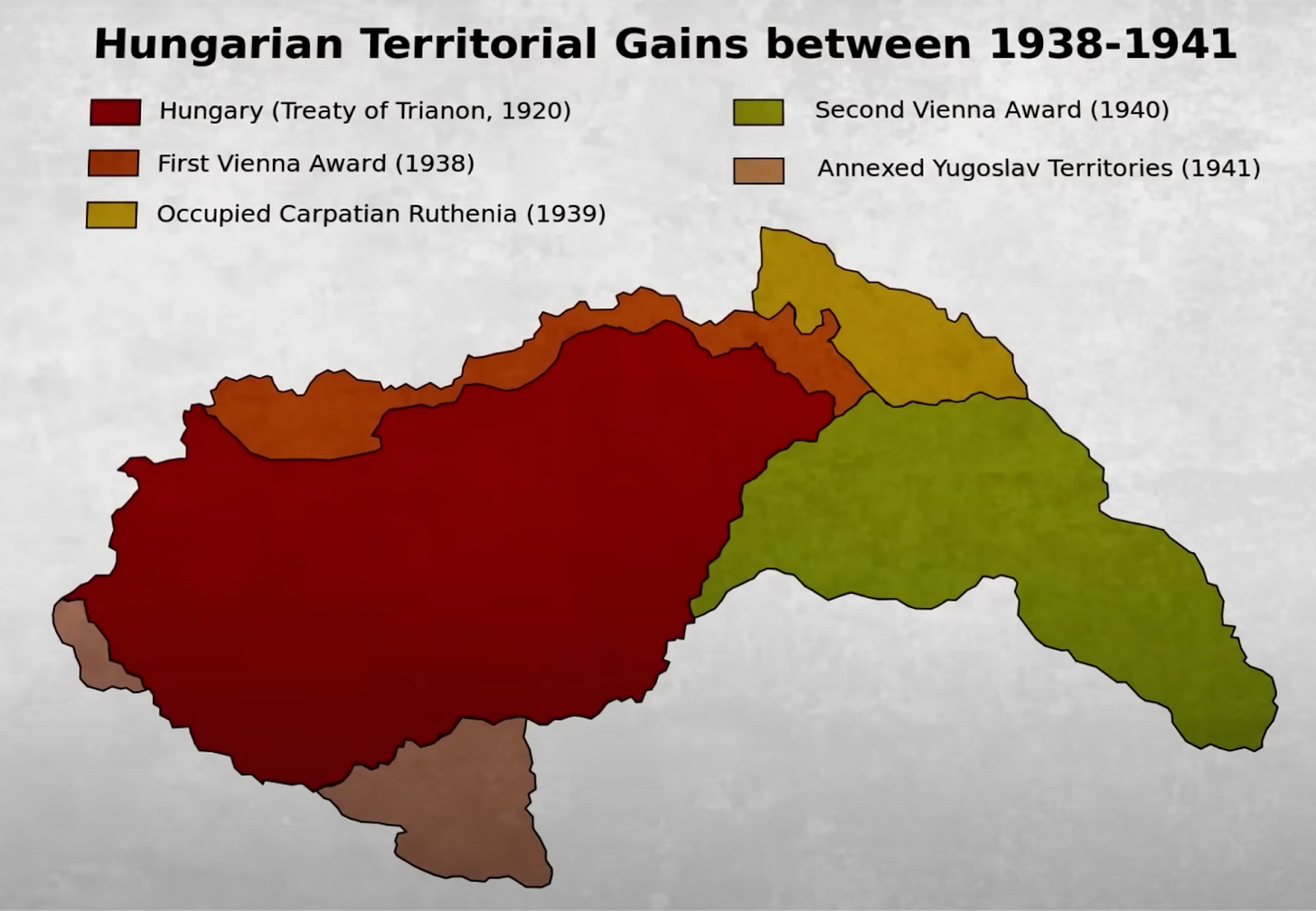
From a Hungarian’s perspective: well written piece with one correction: Hungarian language, while indeed unique, has a huge influence from Slavic languages, German (especially since the “language reform” of mid 1800s, many words translated directly from German), and some French influence blended into the Finno-Ugric language family. But we still benefit from nobody understanding us when abroad, except the 800k+ Hungarians who emigrated after 1956 and since the 2004 EU accession (who tend to show up in the most unexpected places:-).
Excellent article. Maybe some additional thoughts to understand the effect of past on present even better.
1, After November 1918, WW1 ended, the dissolution of Austria-Hungary happened from one day to the other. Ordinary people had enough fighting, and so pacifist social democrat government took over ruling. Republic was introduced instead of a monarchy. 2, But pacifist republic meant the army was demobilized and newly enlarged nationalist neighbors demanded more territories: Romania, Czechoslovakia, the Kingdom of Serbs, Croats and Slovenes. Check the Vix and Clemenceau notes. The social democrats failed and were labelled as traitors of the 1000 year old nation.
3, Political sphere radicalized, instead of socialist republic came a short communist dictatorship in 1919. Army was reorganized, Czechs were fought back, land reclaimed. But domestic politics failed with many communistic purges of pacifist and defected soldiers and international pressure on the dictatorship led to a collapse again. Romanian army sacked Budapest and even more land was lost.
4, Then a WW1 admiral Horthy reorganized the army in the countryside in Szeged, just around the effective Serb-Romanian-Hungarian triple borders. Had a march around the country and started to unite people and land. Now a radical right wing purge followed. Last stop was Budapest, the guilty city with social democratic past.
5, Horthy established a conservative semi autocratic regime, legally the monarchy was restored but without a king, as Habsburgs would have been the symbol of repression. Independence needed someone else, Horthy was head of state as a governor and the effective power was lying with prime minister Bethlen. Pride of the nation was given back in the next 20 years with world class companies and science, sportspeople, education and schools for all and everywhere (Check the Martians.) Nationalist culture and ideology was the essenek of it, to work for regaining price after losing the 1000 year old land.
6. Now its our turn to draw the conclusions why after 100 years the countryside is still radically right, the capital is still heavily liberal and social democratic, communism is hated ever since, nationalism is super important so as conservativism, republic is less sought after, tough leaders are appreciated more than cooperative party politics, why Hungary always looks to Austria as a role model, why a painting of Bethlen hangs in Orbán office, what is the essence of Orbán and he coming after the unsuccessful transition where socialist governments privatized assets to themselves, and he coming again after the 2008-09 crisis completely destroying Hungary.